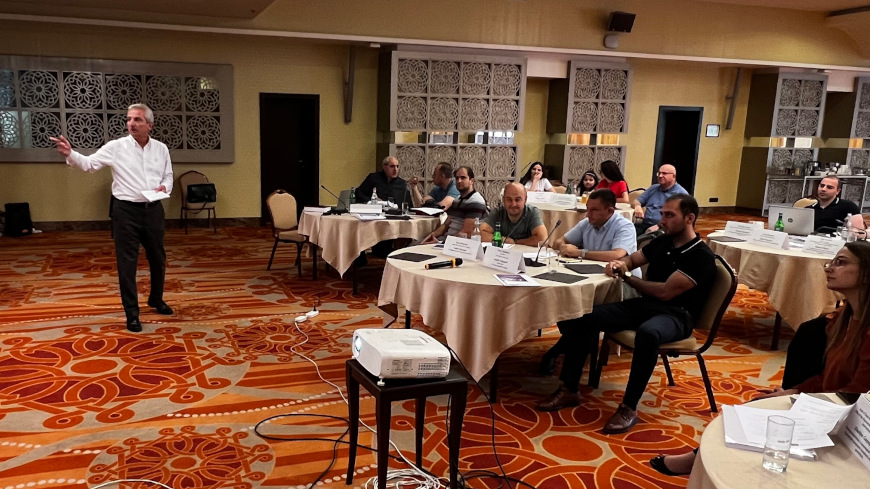15 national trainers got equipped with tools and techniques on adult learning methodology. The objective is to ensure high quality trainings on the new criminal justice legislation, as well as to guide trainers to link the newly acquired knowledge with their practical experience and further enhance their skills.
A three-day training of trainers (ToT) on “Adult learning methodology in the context of the new Criminal and Criminal Procedure Codes of Armenia” was organised on 17-19 June in Tsaghkadzor, Armenia.
During the ToT, participants learned more about the adult training principles, David Kolb’s teaching circle and tailored approach in choosing methodology. The participants benefited from the focused discussion on training techniques and tools as well as on specifics of communication skills in teaching adults. Moreover, the ideology of the new Criminal (CC) and Criminal Procedure (CPC) Codes, grounds for their adoption and peculiarities of teaching legal professionals on the new Codes were presented to the trainers through exercises where feedback on their approach was provided.
Mr Sergey Arakelyan, Rector of the Justice Academy welcomed participants to this training-of-trainers.
The training-of-trainers was organised in co-operation with the Justice Academy by the project “Supporting the criminal justice reform and harmonising the application of the European standards in Armenia," funded by the European Union and the Council of Europe and implemented by the Council of Europe in their Partnership for Good Governance II 2019-2022.





